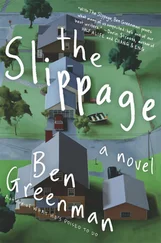After my first morning there, I emerged to find Mortenson smiling and chatting with a secretary. “Go get yourself some lunch and then alphabetize and file the pile by the door,” he told me. That took care of the afternoon and the next day. The hours piled up and I filed them away, too. On the morning of the third day, a knock sounded at the door and Schiff appeared. He stood in the doorway until I invited him in, then took a seat dolorously and asked me how I was enjoying the file room. When I murmured something about getting an education, he cleared his throat to take me off it. “The files are history, but what’s history? Merely markers of time that can’t be recovered.” This was, I would come to learn, his dominant mode, a grave melancholy that he intended as philosophy but was in fact autobiography. “Well, this is what Mortenson wants you to do, so you should work,” he said, “and I should go.”
But he did not go; he stayed with one hand hovering just above the folders and began to instruct me, slowly but with unmistakable purpose, in the law. That first day’s lesson was the Jeffers case, which concerned a client who had sued his employer for unlawful dismissal. Schiff was not capable of fine movements, but his broad strokes had all the necessary detail in them: he explained the man’s position, the employer’s stance, the statute at that time, the dominant interpretation of that statute, the precedent that allowed him to locate an opening. Through it all, it was clear that the law had once meant everything to him, and now meant nothing. He was bereft but not poor; only a rich man could have lost so much. Finally, after we had toured the whole of the case, he stirred heavily. “After lunch, come by my office. I have some work for you that makes more sense than this. I’ll leave it on the table by the window.”
His office was in the corner. As in the matter of the firm’s name, Mortenson had asserted his stature by concession, giving up the largest space on the floor to his partner. Schiff kept the place sparse. He had no pictures with which to clutter the desk or credenza, and no newspapers or magazines. The place was not empty but filled with what was missing. The assignment for me — a list of appointments I was supposed to schedule — was on the table, squared between two staplers.
When I finished, it was late. Nearly everyone had left for the day. From Schiff’s window I could see the spire of the university lecture hall where my father held forth on Lewis Douglas and the Bonus Bill. There was, just beneath the window, a small triangular park, trees springing up from each corner, a small pond in the dead center — no more than a pool, really, for bicycles and baby carriages to circle — and spans of grass in which children tossed a ball. The afternoon light played out, and by degrees my reflection appeared on the window glass. It was unfamiliar to me, and in the midst of so much newness that unfamiliarity was a haven. I had a clear sense of becoming something I had not been before.
Schiff visited me in the file room only once that week, and once the week after that. Each time he lectured in that understated, overdetermined manner of his, and each time he departed with some word or another about work he had for me in his office. As we went, I came to forget the specifics of the cases he presented and to remember only the aphorisms with which he summed up each case. At the conclusion of a long case concerning workplace injury, he represented the judgment to me with this moral: life is a bell with a crack in it, and yet its tone when struck is the nearest to perfection any man will ever know.
It is hard for me to explain exactly what I did in the file room the first part of that summer. The firm had started as a civil-rights concern but under pressure from Mortenson had shifted its business toward anticorporate litigation: a pharmaceutical company that had not adequately advertised the health harms of its products, a shipbuilder that had exposed its workers to irresponsible levels of asbestos. I summarized existing documents, copied new blanks, arranged and assembled. I did not work with any great speed, because I enjoyed staying late, past Schiff and Mortenson, past the secretaries. I liked the office when it went quiet and cool with evening light. It was as if I were the last man on Earth, and I insisted on that belief even when I heard the cleaning lady’s cart clattering its way down the hall. I felt lonely, and in full possession of my loneliness. It was the first time I had owned anything of value.
ON FRIDAYS, Schiff and Mortenson rounded up the secretaries and the paralegals and the office manager, ordered food, and sat in the conference room. The two of them did not agree on many things, but there was no argument here: Chinese. The restaurant was run by a man who had not a drop of Chinese blood in him, but that’s how it was done in those days. We put it out, the moo goo gai pan and chicken chow mein and barbecued spare ribs, and we flipped our ties back over our shoulders and tucked napkins into our collars and got to it.
“Pass that carton, please,” Mortenson said.
“Here you go,” Schiff said. He was eating. He was a man who ate. But while the rest of us sat around the table and talked about our week, he held himself back from the discussion. His gaze went to the window, though he had a way of giving you to understand that he was looking at the pane of glass rather than through it.
“It’s a nice day out there,” said one of the paralegals, a young woman with a brunette bun.
“That it is,” Mortenson said. “Don’t you think?” he asked Schiff. Schiff didn’t answer, and this spurred Mortenson on. “I saw a movie the other day,” he said, pointing his chopsticks — and the shrimp pinched between them — at his partner. “Exciting. About a man who tries to kill the president of an African nation. It’s based on fact.” He knew which part of the sentence shone most brightly to his partner, because he repeated it. “Can you imagine?” he said. “An assassin.”
“I don’t like it when they make a movie about something like that,” Schiff said, bringing his large head around. “The very point of an assassin is that he is trying to be as famous as the man he assassinates. The film shouldn’t conspire with a murderer to that end.”
“What do they call the man they’re trying to assassinate? The assassinee?”
“He is the assassination. That’s the noun for the victim as well as the process.”
“I didn’t know that,” said Mortenson.
“It’s a fact,” said Schiff, “though not a pretty one. What we believe but cannot praise.”
Mortenson was unwilling to be drawn into the other man’s current. “Well,” he said, “this movie has a great sequence where the assassin is assembling his weapon to practice for the fateful moment,” said Mortenson. “He is in a bedroom at the home of his girlfriend, and there is a baby sleeping in the corner. It’s a melodramatic contrast, but somehow it’s very affecting.”
“Well, I don’t like the whole business of it,” Schiff said. “It’s distasteful.”
“Also, in the film, many of the Africans are wearing American T-shirts. And not just any shirts. Did you know that after sports championships are played, the shirts announcing the victory of the losing team, which have of course already been printed, are shipped to Africa? It’s like there’s an alternative reality there.”
“Or here,” Schiff said. And that is how it went: Mortenson moved from subject to subject, like a child discovering the very process of discovery, and Schiff functioned punctuationally, always with a heavy sense of judgment. It was like watching two painters work side by side; Mortenson with more colors in his palette, Sciff furnishing the sense of form.
Читать дальше












